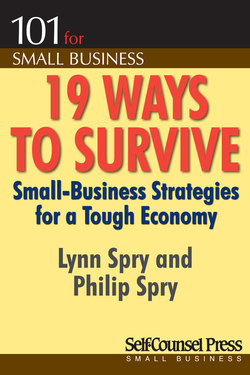Читать книгу 19 Ways to Survive in a Tough Economy - Lynn Spry - Страница 40
На сайте Литреса книга снята с продажи.
6. Check Your Own Charges
ОглавлениеThe last item to review is how much money you, as the owner, take out of the business each month. Consider any expenses you have that you can write off against your business. Meals, entertainment, vehicle expenses, even your salary are expenses that may be able to be reduced so that your business can experience additional growth.
Many small-business owners understand that starting a business is an investment that takes time to build. As one owner of a very successful fire extinguisher business put it, “When we first started, we had very little money. We paid the employees first, the vendors second, the government third, and ourselves last. We didn’t take home a paycheck for the first two years.” Many owners have similar experiences and if you aren’t currently taking a paycheck, you are not alone.
If you are taking a paycheck, you may want to consider reducing your salary. While it is exciting to be able to take money out of the business, it is also important to leave money in the business in order to facilitate growth. Often, expanding takes additional dollars that the business may not have if the owner takes too large a salary. If you are working to expand your business, you will need to leave as much cash in it as possible. In some cases, you may want to look at your home finances and reduce your personal expenses so that you can reduce your salary.
Lifesaver: As a business owner, you may be entitled to more tax deductions than you would if you simply worked for a business. Reviewing all of your expenses with a tax professional may help identify costs you are paying for out of your pocket that are legitimate business expenses. These items can be paid for by your company and may make it easier to reduce your salary.
